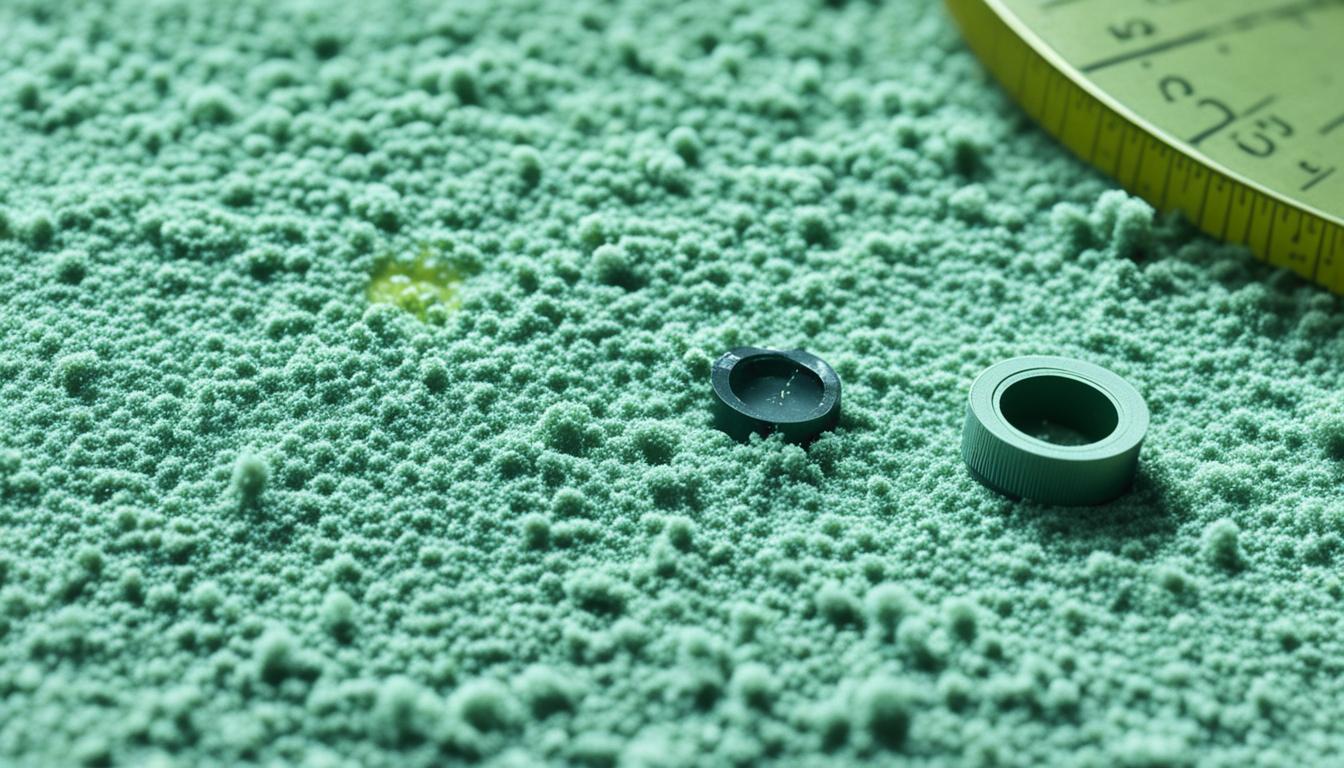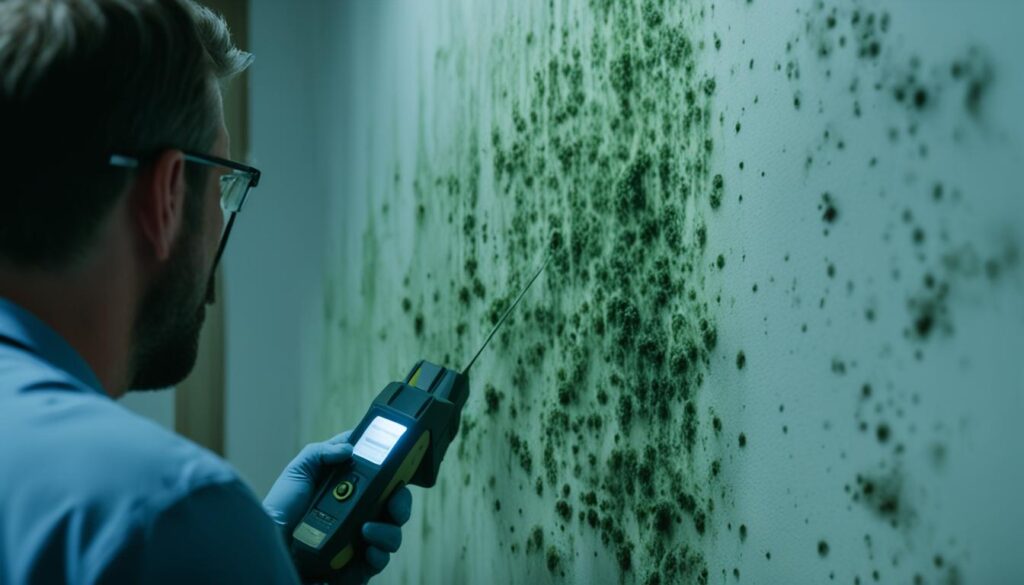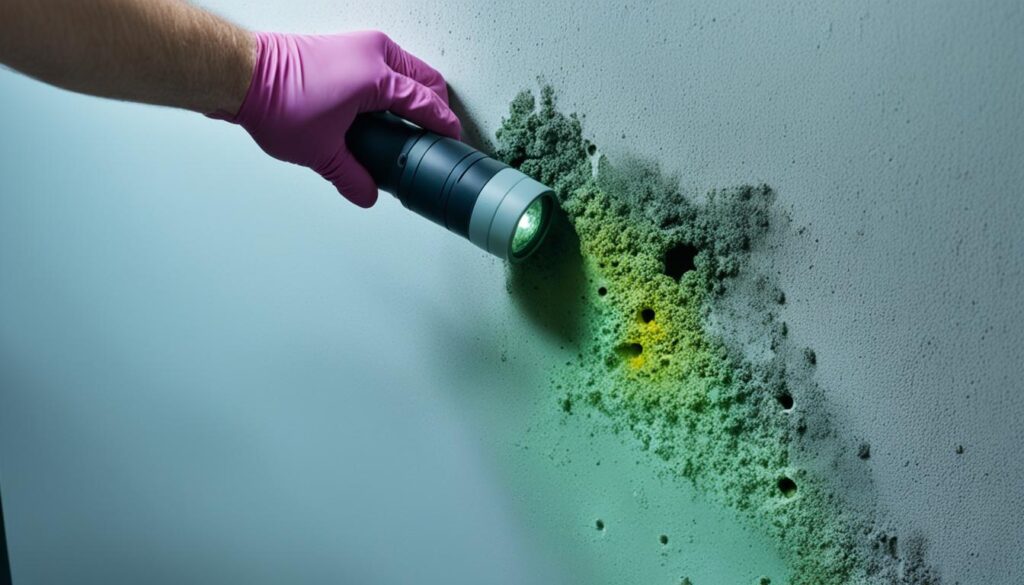
Mold Inspection Necessity Before Remediation Steps
In order to ensure a safe and effective mold removal process for your property, it is crucial to conduct a thorough mold inspection before proceeding with remediation. A mold inspection is a critical step in identifying the presence of mold, assessing its extent, and developing an appropriate plan for remediation. By understanding the importance of mold inspections, you can take proactive measures to safeguard your property and the health of its occupants.
Key Takeaways:
- A mold inspection is essential before starting the remediation process to ensure safe and effective mold removal.
- Inspecting for mold helps identify the presence and extent of mold growth in your property.
- Mold assessments and testing provide valuable insights into the severity of the mold problem.
- Early detection through inspections allows for prompt action and prevents further mold damage.
- Conducting a thorough mold inspection contributes to the success of the overall remediation process by enabling the development of an effective plan.
Understanding Mold Inspections and Their Role in Remediation
Before diving into the remediation process, it is important to have a clear understanding of what mold inspections entail. Mold inspections play a crucial role in identifying the presence of mold and assessing the extent of contamination. By conducting a thorough inspection, professionals can gather essential information needed to develop an effective remediation plan.
An integral part of mold inspections is the assessment of indoor air quality. Mold spores can circulate in the air, posing a risk to the health of occupants. Through air sampling and testing, inspectors can evaluate the concentration of mold spores and identify potential sources of contamination.
“Mold inspections provide valuable insights into the indoor air quality and help in establishing the source of mold growth.”
Another important aspect of mold inspections is following mold remediation protocols. These protocols outline the step-by-step procedures for the safe and efficient removal of mold. By adhering to industry-approved guidelines, professionals can ensure that the remediation process is executed correctly, minimizing the risk of cross-contamination and ensuring the health and safety of both occupants and workers.

The Benefits of Mold Inspections Before Remediation
Mold inspections offer numerous benefits when conducted prior to remediation. By identifying the presence of mold, understanding the extent of the problem, and assessing the overall condition of your property, mold inspections play a vital role in ensuring successful mold removal processes.
Early Detection of Mold Growth
One of the key benefits of mold inspections is the early detection of mold growth. During the inspection, professionals thoroughly examine your property, including hidden areas where mold may be lurking. By identifying and addressing mold growth in its early stages, you can prevent further damage and minimize the need for extensive remediation.
Comprehensive Mold Testing
Mold inspections involve comprehensive mold testing, allowing experts to determine the specific types and levels of mold present. Through various sampling methods, such as air sampling and surface swabs, professionals can analyze the mold spores and assess potential health risks. This information is crucial for developing an effective remediation plan tailored to your specific mold situation.
Thorough Mold Assessment
During a mold inspection, a thorough assessment of the mold problem is conducted. This includes evaluating the extent of mold growth, identifying areas of moisture or water intrusion, and pinpointing the root cause of mold development. A comprehensive mold assessment provides valuable insights that help in planning the most appropriate and targeted remediation strategies.
By understanding the benefits of mold inspections, you can prioritize this essential step before remediation. Through early detection, comprehensive testing, and a thorough assessment, mold inspections ensure the long-term health and safety of your property, as well as the effectiveness of the subsequent mold removal process.

| Benefits of Mold Inspections: |
|---|
| Early detection of mold growth |
| Comprehensive mold testing |
| Thorough mold assessment |
Conclusion
In conclusion, a mold inspection is a necessary step before initiating the remediation process. By conducting a thorough inspection, you can identify the presence of mold, determine the extent of the problem, and develop an effective remediation plan. Mold inspections contribute to the overall success of the remediation process by ensuring the safe and efficient removal of mold from your property.
During a mold inspection, trained professionals carefully assess the affected areas, conduct mold testing, and perform a comprehensive mold assessment. This process helps to determine the type of mold, the severity of the infestation, and the potential risks to your health and property.
By addressing mold issues through proper mold removal techniques, you not only eliminate the visible signs of mold but also prevent its recurrence and associated health risks. Investing in a mold inspection before remediation can save you time, money, and potential health complications in the long run.
To schedule a mold assessment or learn more about our services, contact Fix Mold Miami at 305-465-6653. Our team of experienced professionals will ensure a thorough inspection and guide you through the entire remediation process, providing you with a safe and mold-free environment.




